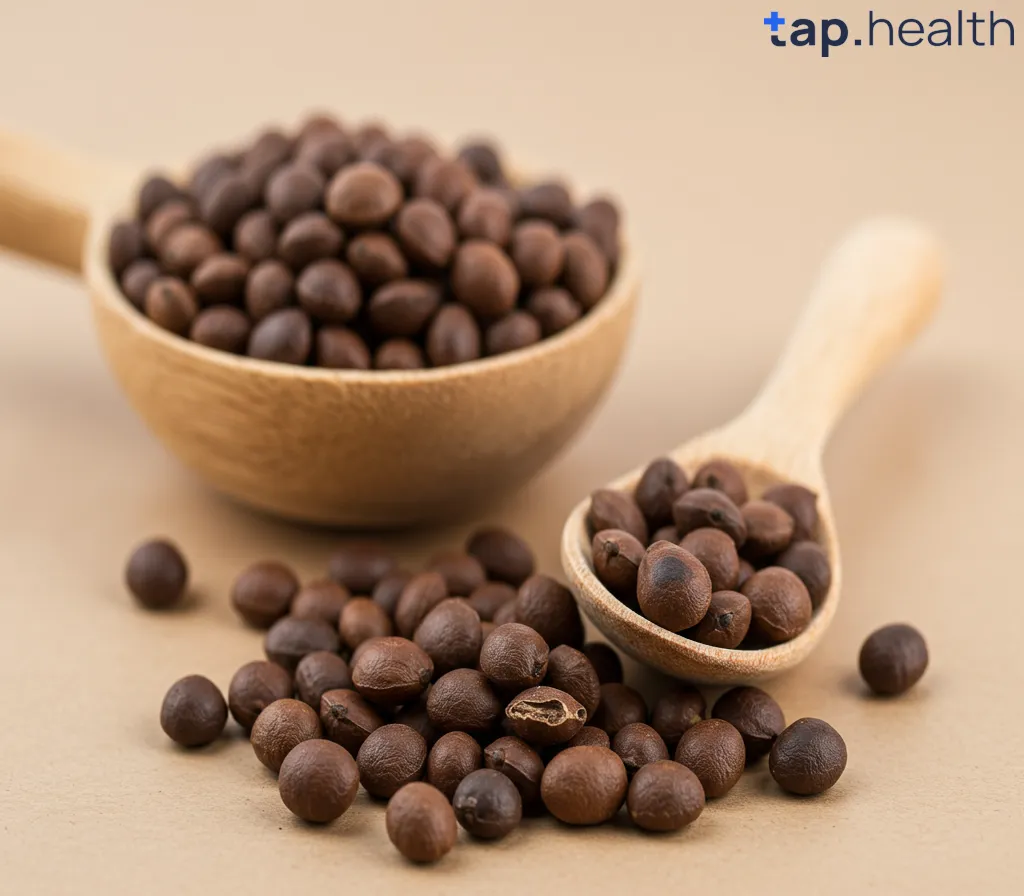Pregnancy is a special time in a woman’s life, filled with excitement, anticipation, and also a lot of questions about health and diet. One of the questions that often arise is whether it’s safe to consume certain foods during pregnancy, including sabja seeds. These tiny, black seeds are widely used in various dishes, beverages, and even for health benefits. But is it safe to consume them while pregnant?
In this article, we will explore everything you need to know about sabja seeds during pregnancy, including their benefits, potential risks, and best practices for consumption.
What Are Sabja Seeds?
Before we dive into the safety of consuming sabja seeds during pregnancy, let’s first understand what they are.
What are Sabja Seeds?
Sabja seeds, also known as basil seeds or tukmaria, are the seeds of the sweet basil plant (Ocimum basilicum), which is native to Asia. These seeds are often confused with chia seeds, but they are different in terms of their appearance and texture. Sabja seeds are small, oval, and black in color. They are often used in drinks, desserts, and as a garnish in different cuisines, especially in South Asian cooking.
Nutritional Profile of Sabja Seeds
Sabja seeds are known for their impressive nutritional profile, which includes:
- High fiber content: They are rich in dietary fiber, which can aid in digestion.
- Rich in healthy fats: Sabja seeds contain omega-3 fatty acids, which are important for overall health.
- Good source of vitamins: They provide vitamins like vitamin K, vitamin C, and folate, all of which are beneficial for health.
- Minerals: Sabja seeds also contain calcium, iron, magnesium, and potassium.
These seeds are also hydrophilic, meaning they can absorb water and expand. When soaked, they become gel-like and can be added to drinks, smoothies, or other dishes.
Are Sabja Seeds Safe to Consume During Pregnancy?
Now that we know what sabja seeds are, let’s explore whether they are safe to consume during pregnancy. The short answer is yes, but like anything during pregnancy, moderation and caution are key.
Benefits of Consuming Sabja Seeds During Pregnancy
When consumed in moderation, sabja seeds can offer several health benefits during pregnancy. Let’s explore some of these:
1. Rich in Fiber for Digestive Health
Pregnant women often experience digestive issues like constipation, bloating, or indigestion. The high fiber content of sabja seeds can help regulate bowel movements, reduce constipation, and improve digestion. Soaking the seeds in water before consuming them can help them expand and become gel-like, which can make them easier to digest and more effective in easing digestive problems.
2. Rich Source of Omega-3 Fatty Acids
Omega-3 fatty acids are essential for the proper development of the baby’s brain and eyes. Sabja seeds are rich in omega-3s, particularly alpha-linolenic acid (ALA), which is a plant-based source of omega-3s. Including these seeds in your diet during pregnancy can help support your baby’s cognitive development.
3. Provides Hydration
One of the unique properties of sabja seeds is their ability to absorb water and expand, making them a good source of hydration. Staying hydrated is crucial during pregnancy, and adding sabja seeds to your drinks can help improve hydration levels.
4. Improves Blood Sugar Levels
Sabja seeds are known to have a low glycemic index, meaning they do not cause a rapid increase in blood sugar levels. For pregnant women, especially those with gestational diabetes, consuming foods that help regulate blood sugar is essential. The fiber in sabja seeds also helps in controlling blood sugar spikes.
5. Rich in Antioxidants
Sabja seeds contain antioxidants, which are important for both maternal and fetal health. These antioxidants help fight oxidative stress and inflammation in the body, which can be particularly beneficial during pregnancy when the body is undergoing various changes.
Potential Risks of Consuming Sabja Seeds During Pregnancy
While sabja seeds have numerous health benefits, it’s important to be aware of any potential risks associated with consuming them during pregnancy.
1. Allergic Reactions
Although rare, some people may be allergic to sabja seeds. If you are trying them for the first time during pregnancy, it is important to start with a small quantity to see how your body reacts. If you experience any signs of an allergic reaction, such as swelling, itching, or difficulty breathing, discontinue use and seek medical advice immediately.
2. Excessive Fiber Intake
Sabja seeds are rich in fiber, which can be beneficial for digestion, but consuming too many can lead to digestive discomfort, bloating, or diarrhea. During pregnancy, it is important to maintain a balanced diet, and consuming too much fiber in one go may cause discomfort. Always consult your doctor or dietitian about the ideal quantity.
3. Potential Interference with Medications
Sabja seeds may have a mild blood-thinning effect because of their omega-3 content. If you are on any medication, especially blood thinners or medications for blood pressure, it is important to consult your doctor before including sabja seeds in your diet.
4. Excessive Water Absorption
When soaked, sabja seeds absorb a lot of water and expand. If consumed in large quantities without enough fluid, there is a risk of causing bloating or discomfort. It’s important to soak the seeds properly and drink plenty of water when consuming them.
How to Safely Consume Sabja Seeds During Pregnancy?
If you’ve received the green light from your healthcare provider to consume sabja seeds during pregnancy, here are a few tips to enjoy them safely:
1. Start with Small Quantities
If you’re trying sabja seeds for the first time during pregnancy, start with small quantities to see how your body responds. Begin with about one teaspoon of soaked sabja seeds and gradually increase the amount as you feel comfortable.
2. Soak Before Eating
Always soak sabja seeds in water for at least 15-30 minutes before consuming them. Soaking helps them expand, making them easier to digest and also helps you avoid the risk of choking or any digestive issues. The gel-like texture also enhances hydration.
3. Combine with Other Foods
Sabja seeds can be added to smoothies, milkshakes, yogurt, or fruit salads for a nutritious boost. You can also use them to garnish desserts or mix them with lemon water for a refreshing drink.
4. Stay Hydrated
Since sabja seeds absorb water, it’s important to stay well-hydrated when consuming them. Make sure you drink plenty of water throughout the day to help with digestion and to avoid any digestive discomfort.
Frequently Asked Questions (FAQs)
1. Can sabja seeds help with morning sickness during pregnancy?
Yes, sabja seeds may help alleviate morning sickness by soothing the stomach and improving digestion. You can mix soaked sabja seeds with lemon or mint to help with nausea and vomiting, which are common symptoms of early pregnancy.
2. Are sabja seeds safe during the first trimester?
Sabja seeds are generally safe to consume during the first trimester, but it’s important to start with small amounts and consult your doctor before introducing new foods to your diet. Moderation is key to prevent any digestive issues.
3. Can I consume sabja seeds if I have gestational diabetes?
Yes, sabja seeds can help regulate blood sugar levels due to their low glycemic index and high fiber content. However, it’s always advisable to consult your doctor before consuming sabja seeds if you have gestational diabetes to ensure they’re suitable for your specific condition.
4. How should I prepare sabja seeds during pregnancy?
Soak sabja seeds in water for 15-30 minutes before consumption. You can add them to beverages like lemon water, smoothies, or milkshakes for added nutrition. Avoid consuming them dry, as they may cause discomfort.
5. Can sabja seeds cause allergies during pregnancy?
Although rare, some people may be allergic to sabja seeds. If you experience any symptoms such as itching, swelling, or breathing difficulties, discontinue use immediately and consult your healthcare provider.
6. Can sabja seeds help with constipation during pregnancy?
Yes, the high fiber content in sabja seeds can help relieve constipation by promoting healthy bowel movements. This is particularly beneficial during pregnancy, when constipation is a common issue.
Conclusion
Sabja seeds, when consumed in moderation, can be a healthy and nutritious addition to your diet during pregnancy. They offer numerous benefits, including improving digestion, enhancing hydration, providing essential omega-3 fatty acids, and supporting blood sugar regulation. However, as with any food during pregnancy, it’s important to be cautious and consult with your healthcare provider before incorporating sabja seeds into your diet.
By following the recommended guidelines for safe consumption and being aware of potential risks, you can enjoy the benefits of sabja seeds while keeping your pregnancy healthy and comfortable.



